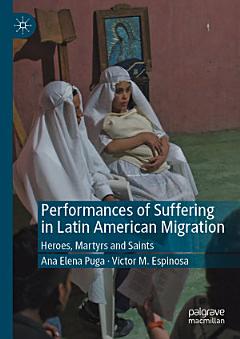Timely, beautifully written, and deeply researched, Puga’s and Espinosa’s study captures the complex nuances of how performance scholars and ethnographers grapple with telling stories of and bearing witness to trauma. They invite scholars to re-imagine the narrative genres into which histories of migration are often coerced. They question how familiar forms such as melodrama can empower or dis-empower individuals struggling to share their stories and change their circumstances. Their thoughtful work offers a compassionate and erudite model for performance ethnographers.
Heather S. Nathans
Alice and Nathan Gantcher Professor in Judaic Studies
Tufts University
In their penetrating analysis, Puga and Espinosa show how militarized borders, neoliberal economics, exclusionary immigration policies, and rising nativism have combined to create an ongoing melodrama in which migrants, journalists, and rescuers perform scripted roles as martyrs, saints, and heroes in an effort to sway a global audience of onlookers. Although the protagonists in this melodrama seek to relieve the suffering of migrants by valorizing their pain and using it as a currency in a political economy of suffering, the authors’ sympathetic but critical analysis reveals both the promise and perils of this emotive strategy. Their analysis is essential to understanding how immigration is portrayed and perceived in the world today.
Douglas S. Massey
Henry G. Bryant Professor of Sociology and Public AffairsPrinceton University
Ana Elena Puga and Víctor M. Espinosa’s Performances of Suffering is well-researched and compellingly theorized collaboration which reveals the affective labor performed by, with and for migrants in the United States and Mexico. In these perilous times, the lessons that this book teaches us about the performance of melodrama as a key aspect of obtaining justice and care for migrants throughout the hemisphere are crucial to understanding representations of “migrant crises” in our contemporary social media, performance and advocacy movements.
Patricia Ybarra
Professor of Theatre Arts and Performance Studies
Brown University
In this fascinating book, Puga and Espinosa illuminate the political economy of suffering among Latin American migrants. This is a timely and important work to understand how migrants, the state, humanitarian workers, and the media all perform the melodrama of the suffering migrant. An impressive and provocative book!
Carolyn Chen
Associate Professor of Ethnic Studies
University of California at Berkeley

